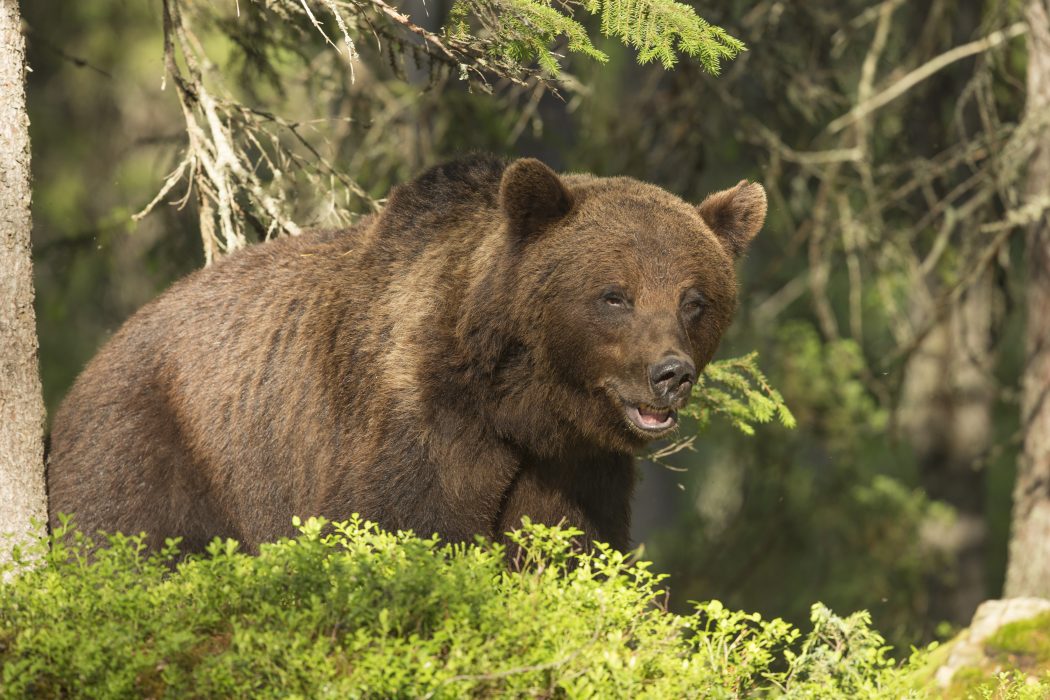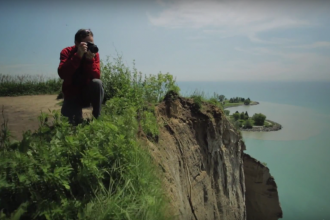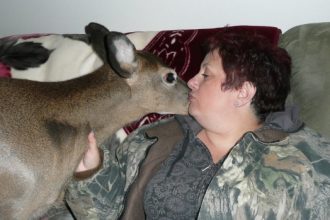It’s a frightening scenario, but one every Canadian should be prepared for: running into a bear out in the wild. There have been several bear attacks in North America in the last few months, including a case in which a grizzly bear attacked the same man twice in one day, and on top of the real attacks, last year’s fictional depiction of a bear attack in The Revenant made many of us wonder what we’d do in the same situation. With these factors in mind, it’s not surprising that many people have a newfound interest in learning what to do if they see a bear.
As with most things, knowledge is your best defence when it comes to bear encounters. Walking away unscathed involves an element of luck, but there are certain things you can do to improve your odds of walking away unharmed. And it turns out not all bears are the same, so you’ll need to tailor your behaviour to the type of bear you’ve encountered.
What to do when you’re in bear country
This is the “prevention is better than a cure” approach to bears. If you’re wondering what to do if you see a bear, the first thing you should focus your energy on is trying not to see a bear. It’s not entirely in your control, but there are things you can do to help prevent unexpected encounters. One is to make lots of noise when you’re in bear country. Bears don’t want to see you just as much as you don’t want to see them, and if they hear you coming, they’ll avoid you. Many bear attacks happen when people stumble on and surprise bears (or worse, their cubs). So try to travel in groups, and give the bears plenty of warning that you’re coming. And if you’re camping in areas populated by bears, make sure you keep your food out of your tent and preferably in a bear-proof container, in your car, or hanging from a tree.
What to do if you see a bear in the distance
This is the best-case bear-sighting scenario. If you see a bear at a distance, make sure you keep it that way. Avoid it, and if you have to move past where it is, give it an extremely wide berth. Do not try to approach it to get photos or give it food, and do not run away, as that may trigger it to chase you. Instead, move away slowly and calmly.
What to do if you see a bear up-close
If you stumble upon a bear close-up, you need to focus on getting away without prompting it to become aggressive. If the bear does not approach you, avoid eye contact and back away slowly. If it does approach, still avoid eye contact, but speak softly to it while backing away. You need to show the bear that you’re not a threat and that you do not intend to act aggressively. Again, do not run.
What to do if a bear acts aggressively towards you
What to do with an aggressive bear depends on the type of bear and the reason for its aggression, so there are different responses for black bears and grizzlies.
Black bears don’t usually attack humans unless they feel threatened or if you get near their cubs. If a black bear is feeling defensive, it will often keep its head low and its ears laid back, and will make sounds or swat the ground to intimidate you. If you encounter a bear like this, your best bet is to cautiously retreat, showing it that you are not a threat. Black bears may run toward you, but it is often a bluff, so stand your ground to show it that you are not easy prey, then retreat slowly. If you have bear spray, use it if the bear begins to rush you, and if it attacks, try to get away, or fight back as a last resort. This bear wants you to leave, so do your best to oblige it.
If a black bear has its head held high and seems to “stalk” you, it may be sizing you up as prey. This is rare, but sometimes bears do see humans and attack with the intent to kill. Instead of making sounds, it will come in closer to you to assess if you’re a good target. This is the situation in which you must fight back. Make yourself look large, make loud sounds, and even if it attacks, do not give up. Playing dead will not help, because the bear wants you dead, and its next step may be to eat you! So fight back and show it that you’re not easy prey, and not worth the trouble.
Grizzly bears are more unpredictable than black bears, and more likely to attack. If you surprise a grizzly bear or its cubs, like with a black bear, back away slowly without making eye contact. Again, if it charges, use bear spray. If a grizzly bear attacks you because it is surprised or defensive, play dead. This bear simply wants you eliminated as a threat, so you should play dead to convince it you’re no threat to it. It may attack you as you play dead, so lay on your stomach, clasp your hands over the back of your neck to protect it, and brace yourself so the bear cannot flip you over. Do this until the bear has decided you’re no longer a threat and leaves, and then wait to make sure it is gone before you get up or move.
If the grizzly bear is attacking you for predatory (rather than defensive reasons), or if it starts trying to eat you after attacking you, this is when you should start fighting back. Like with a black bear, you should shout, try to appear as large as possible, and hit the bear in its face or muzzle. Show the bear that, as prey, you are going to be very troublesome to defeat.
Also on RNR:

























